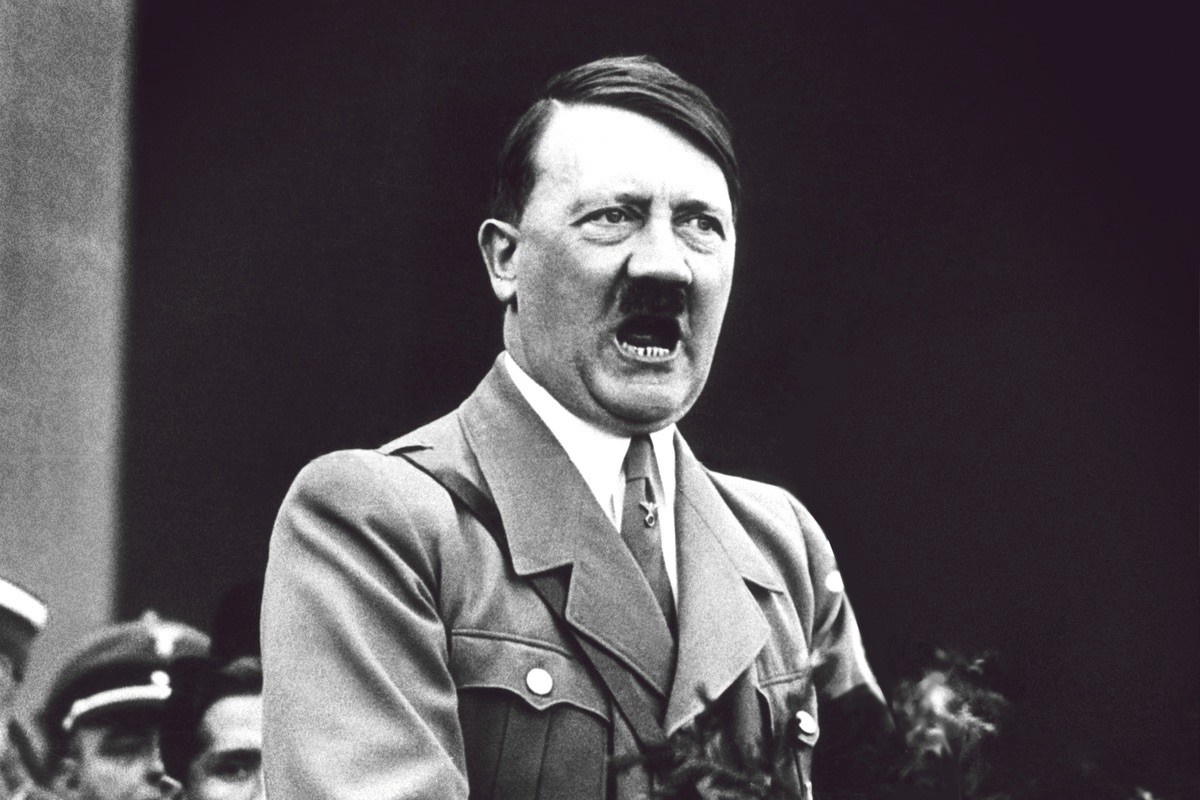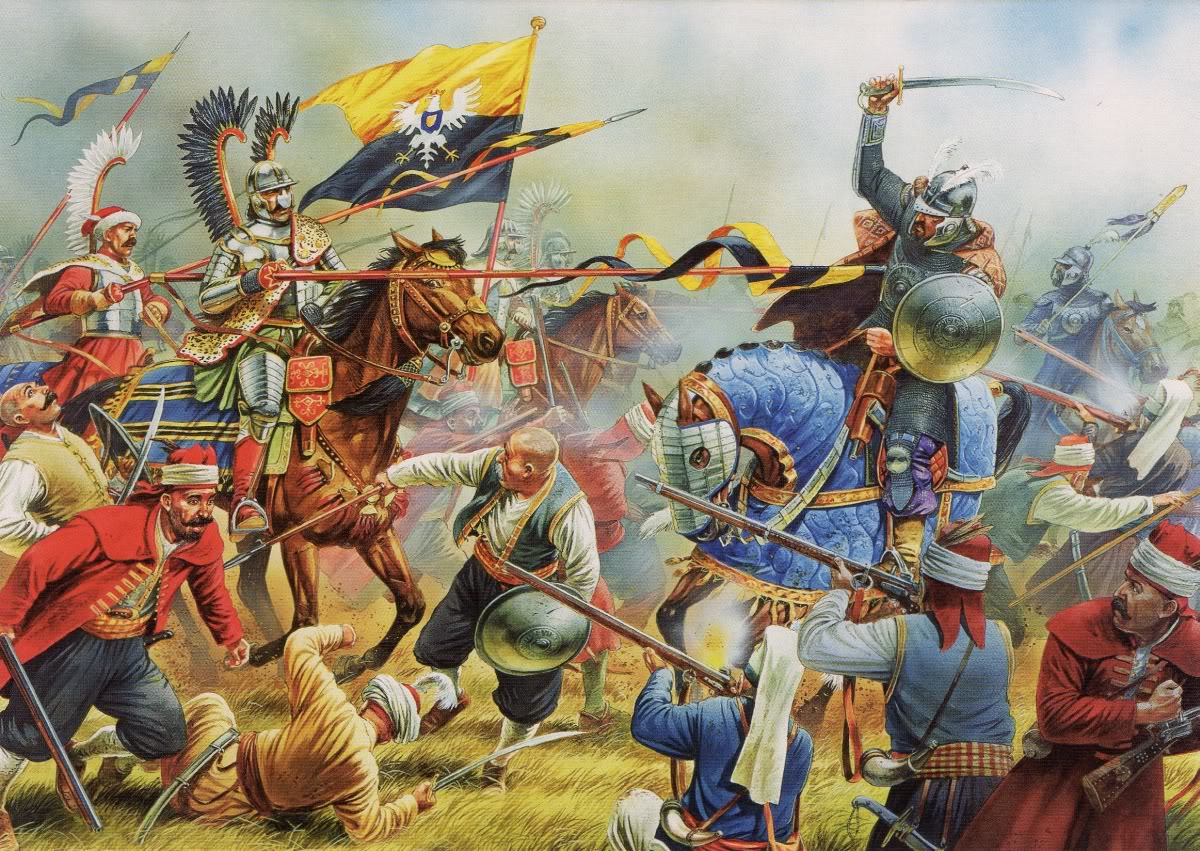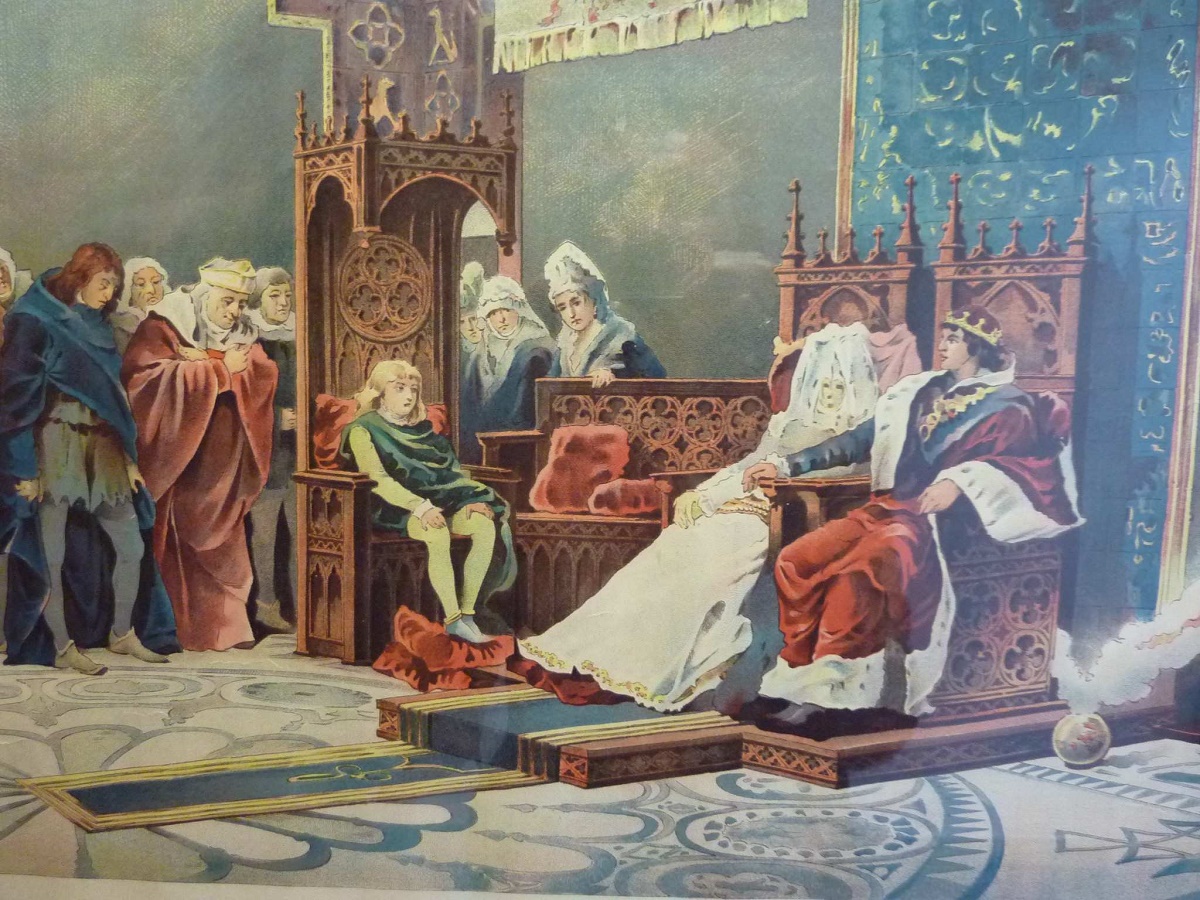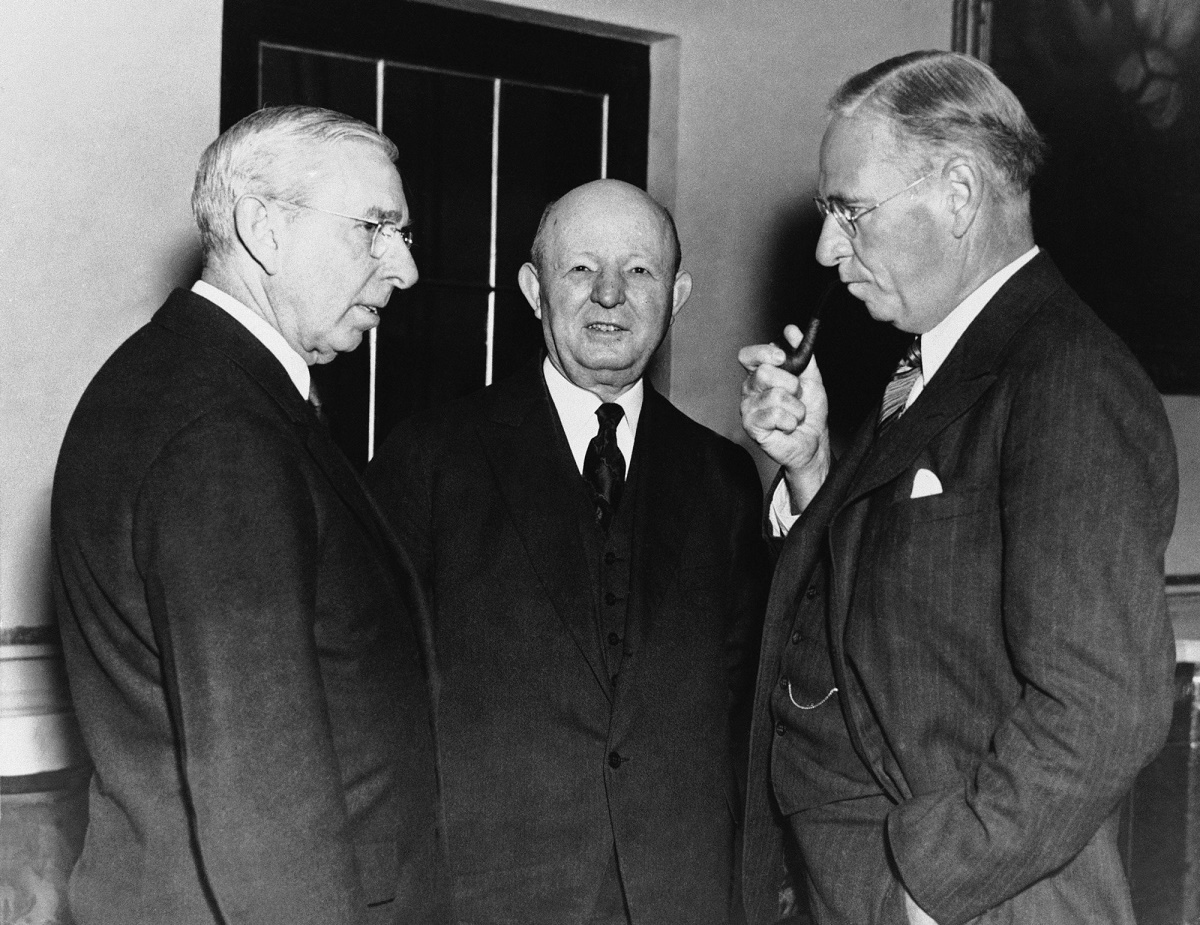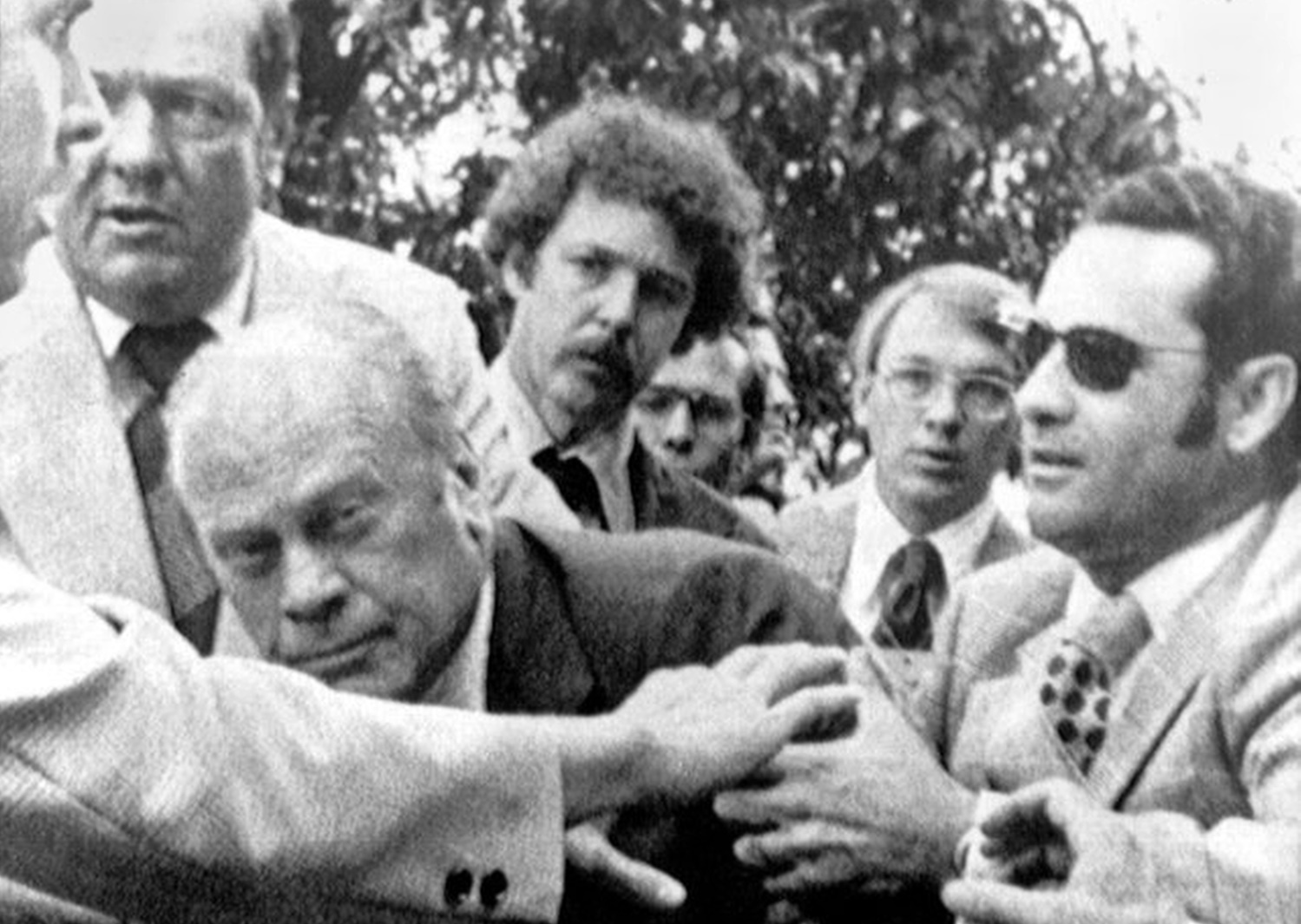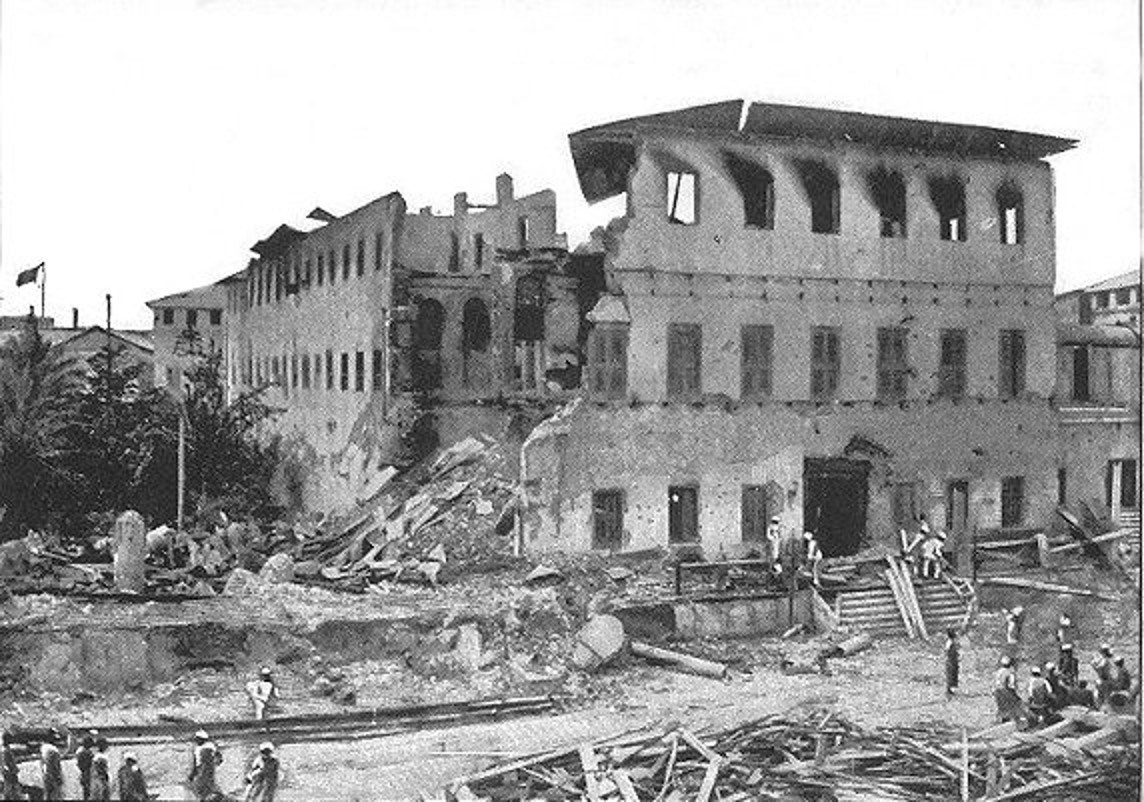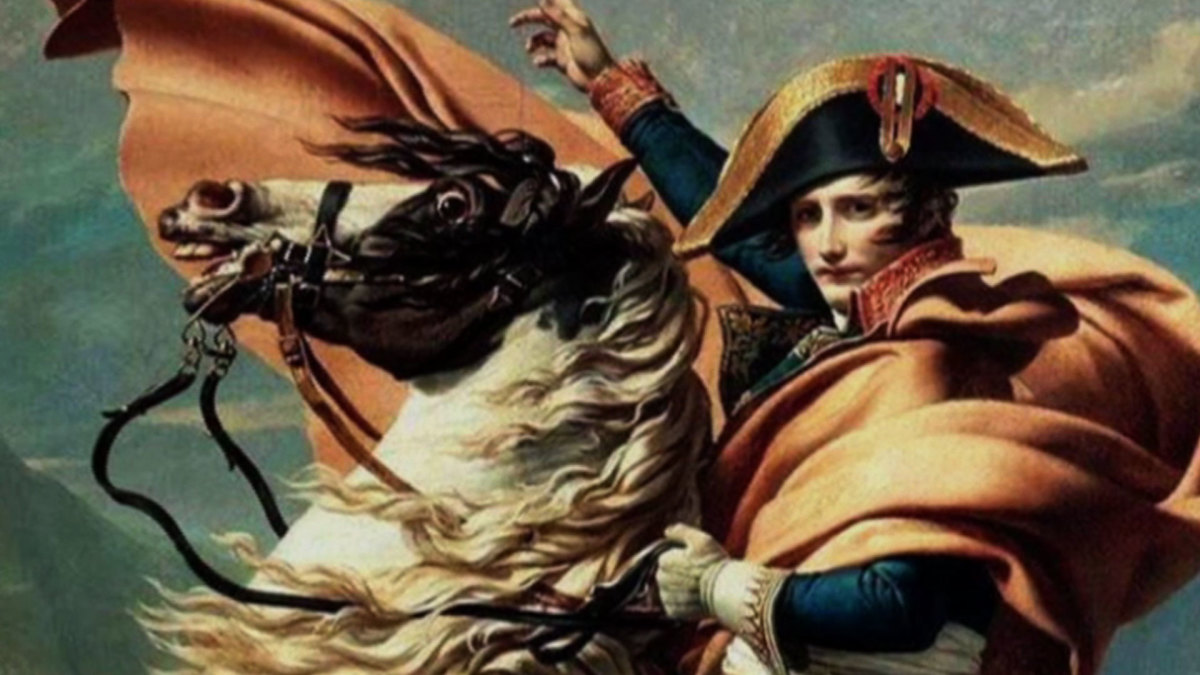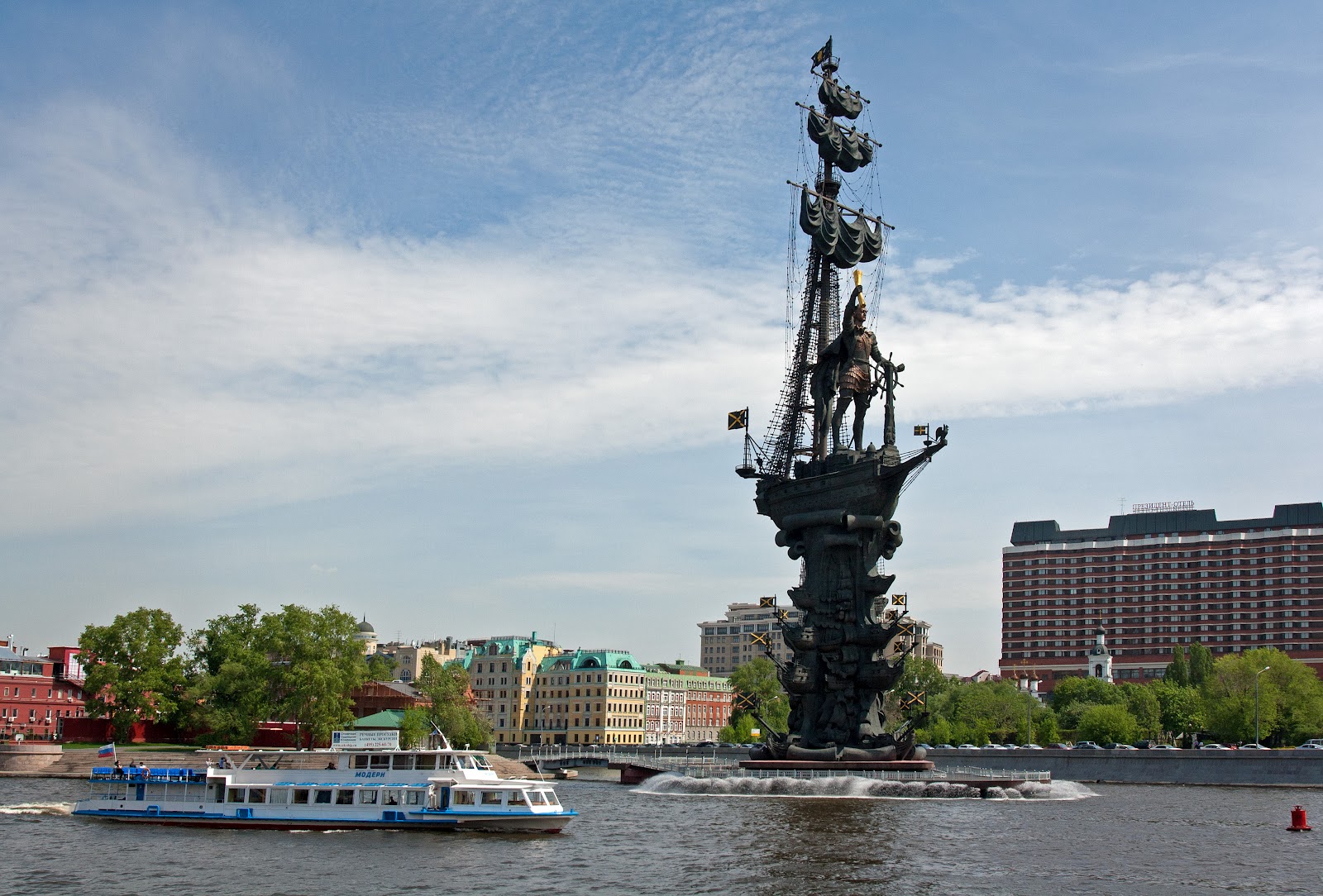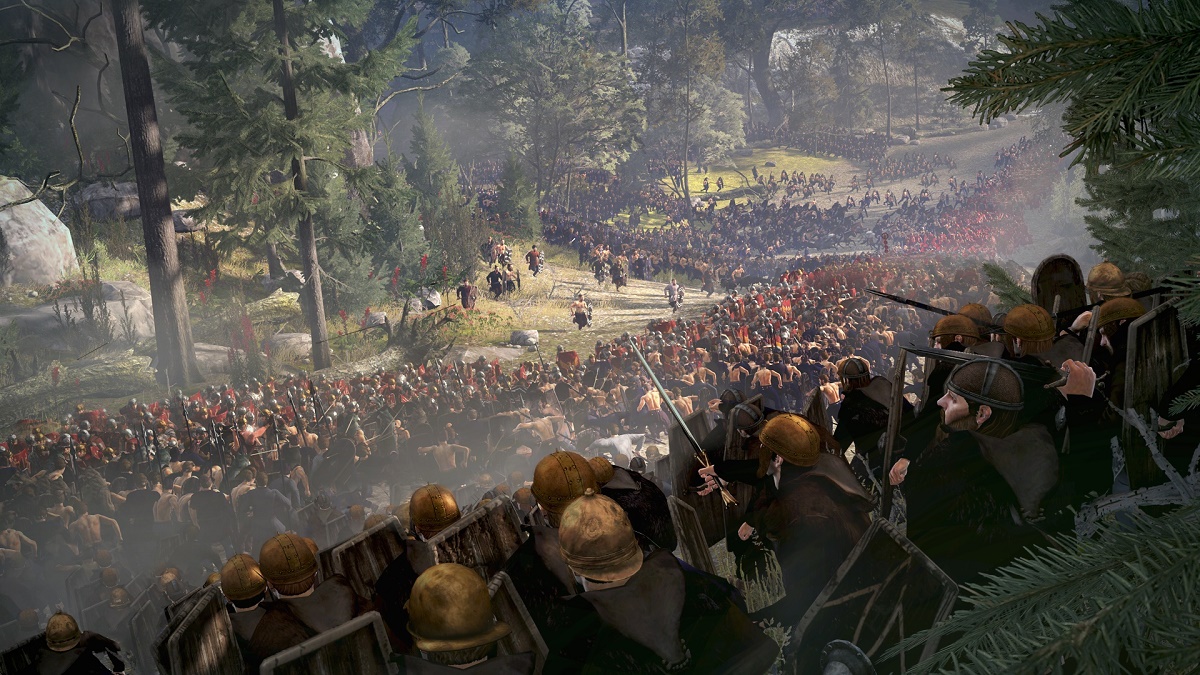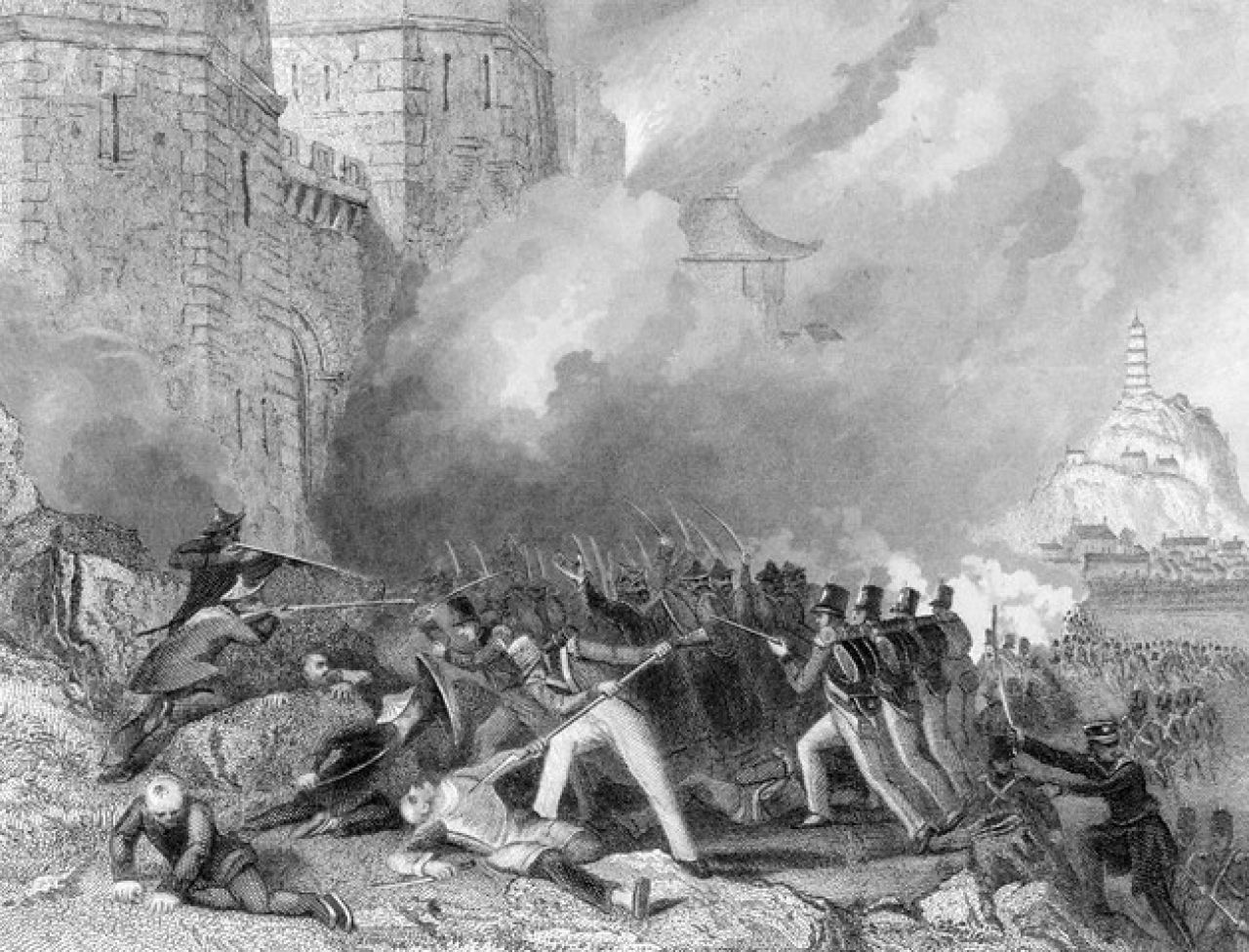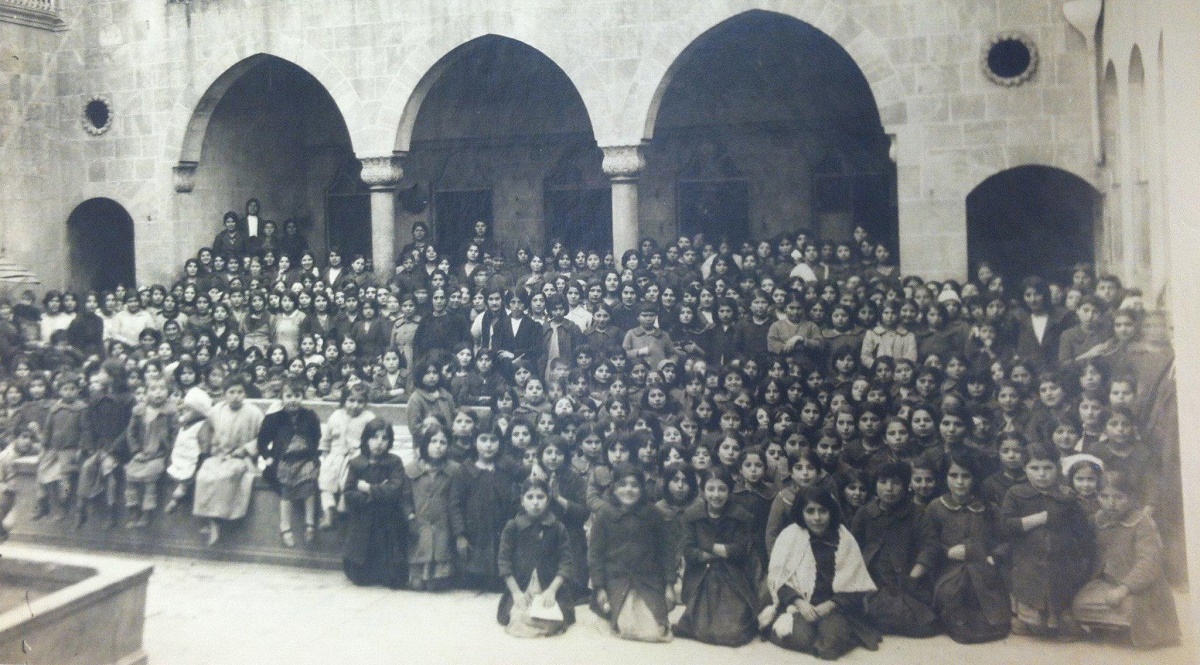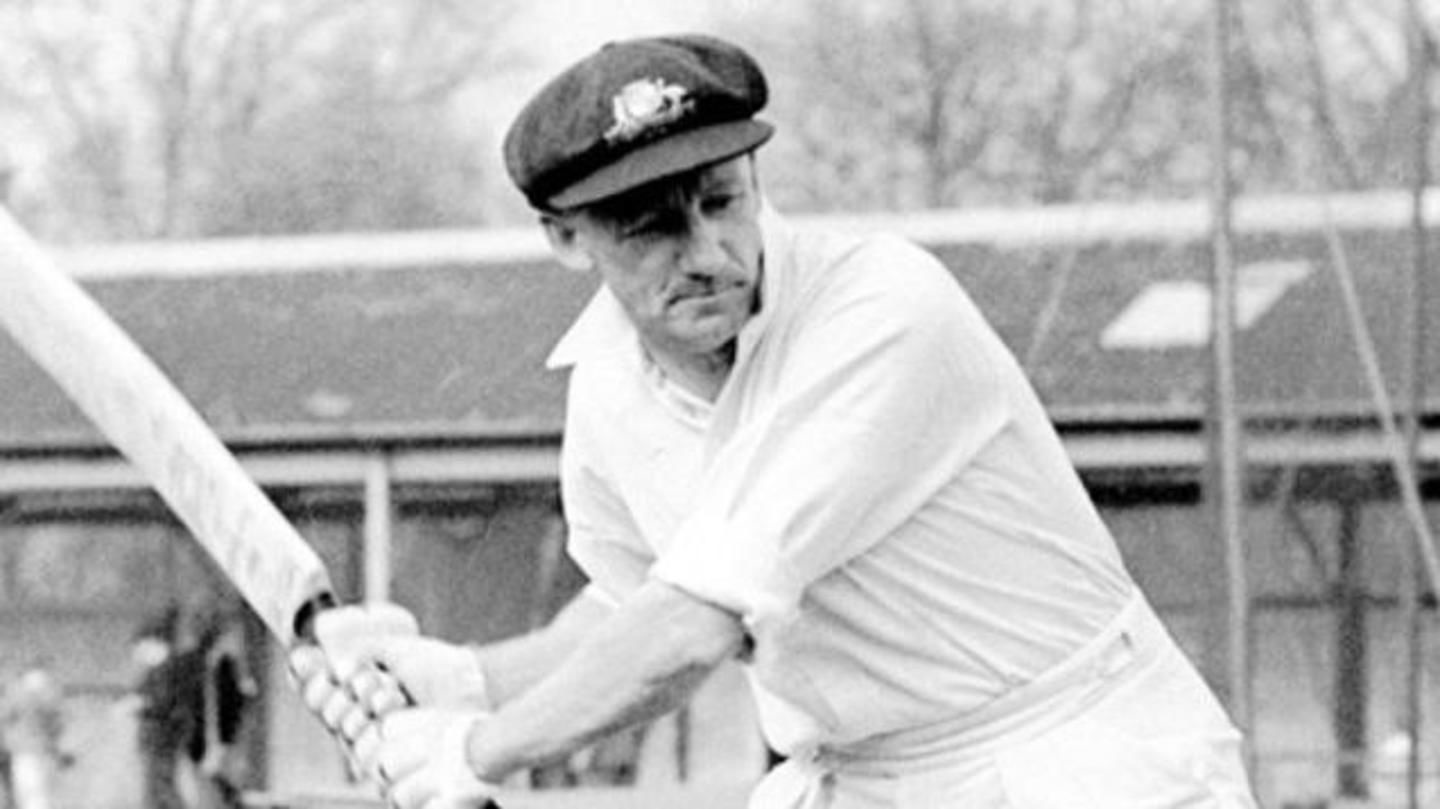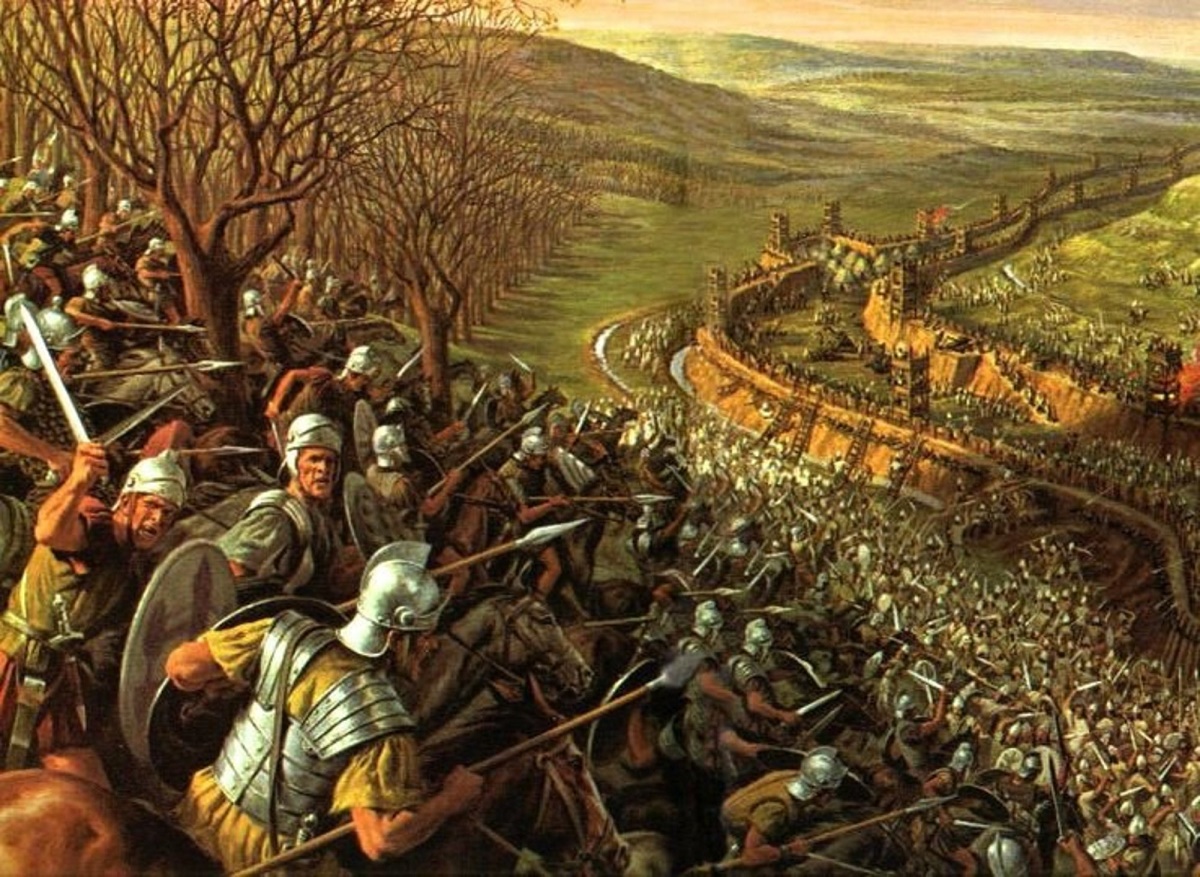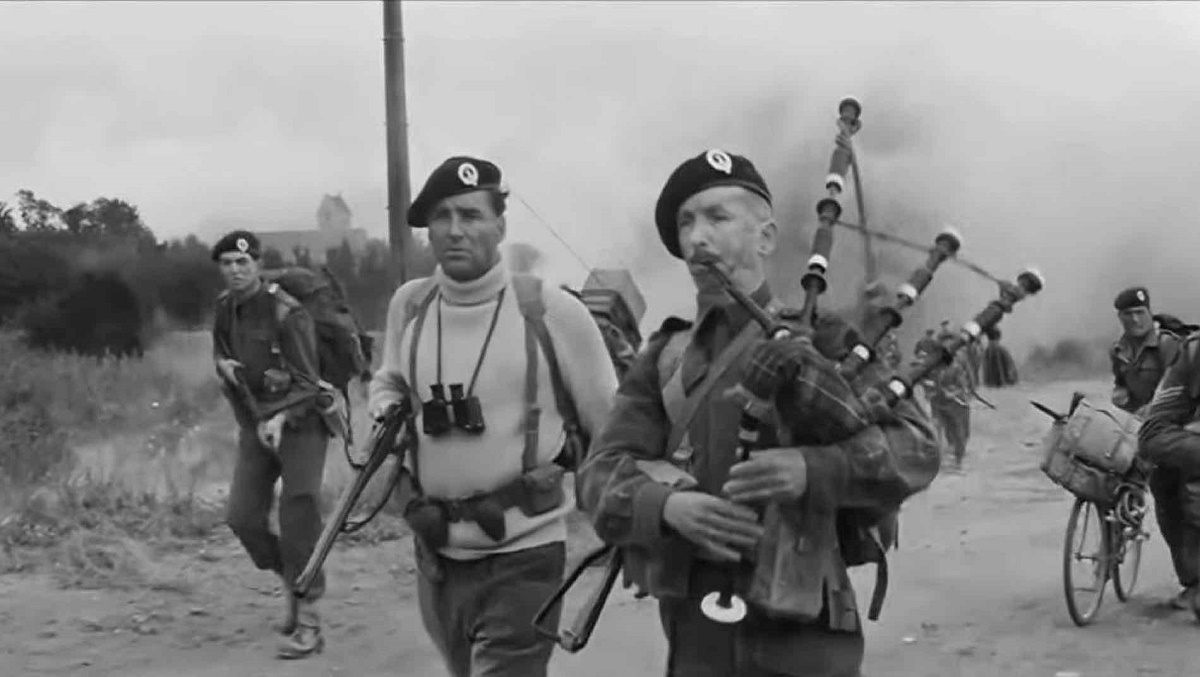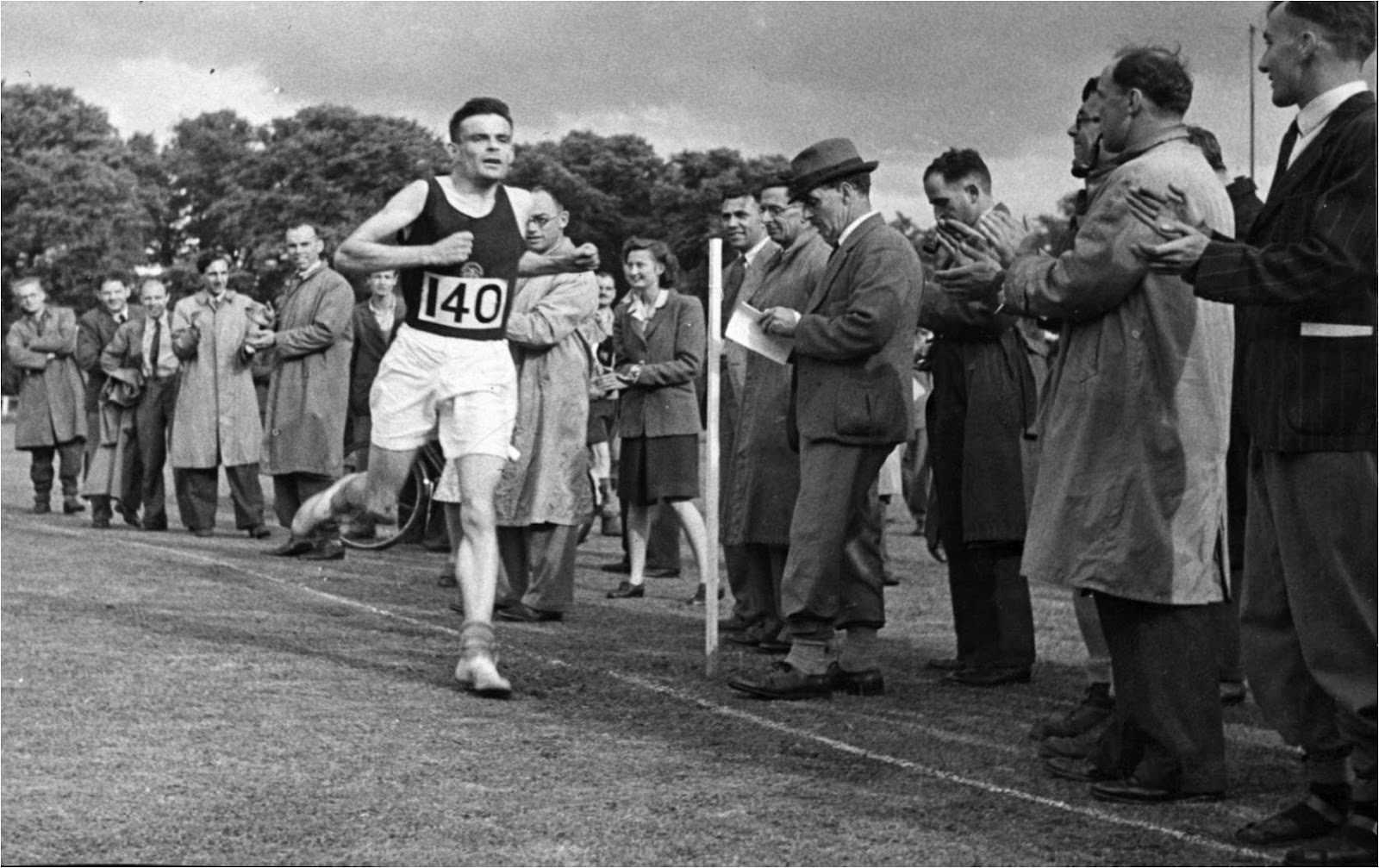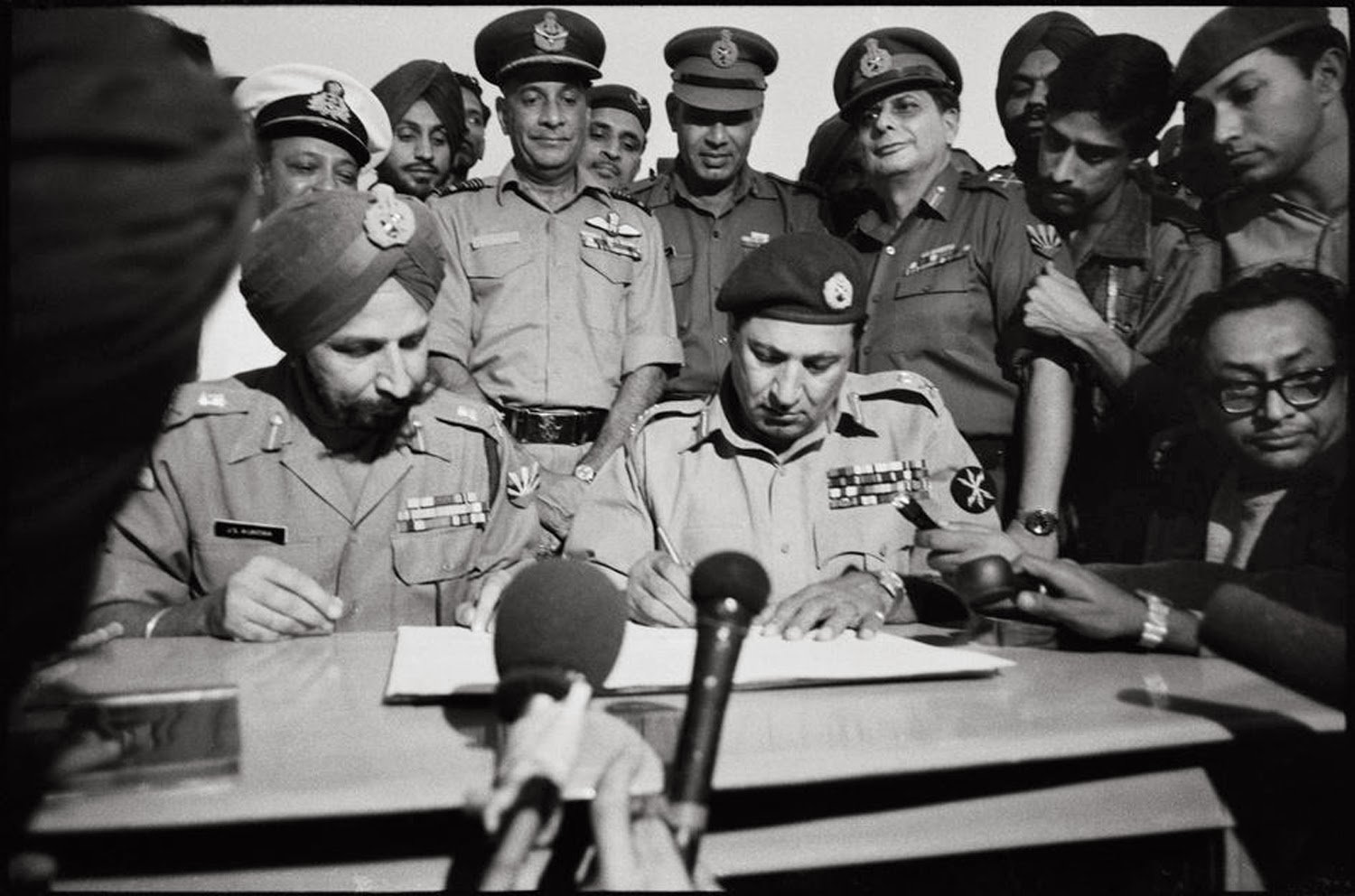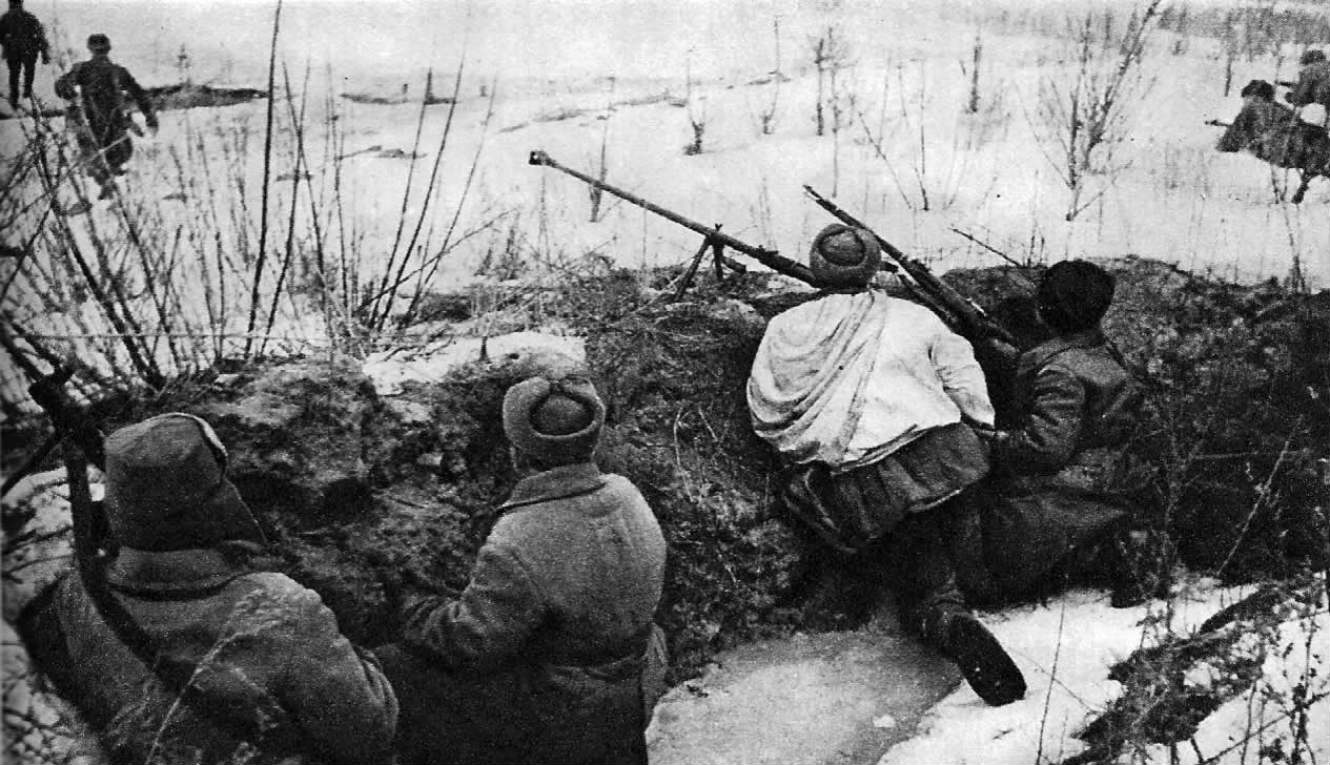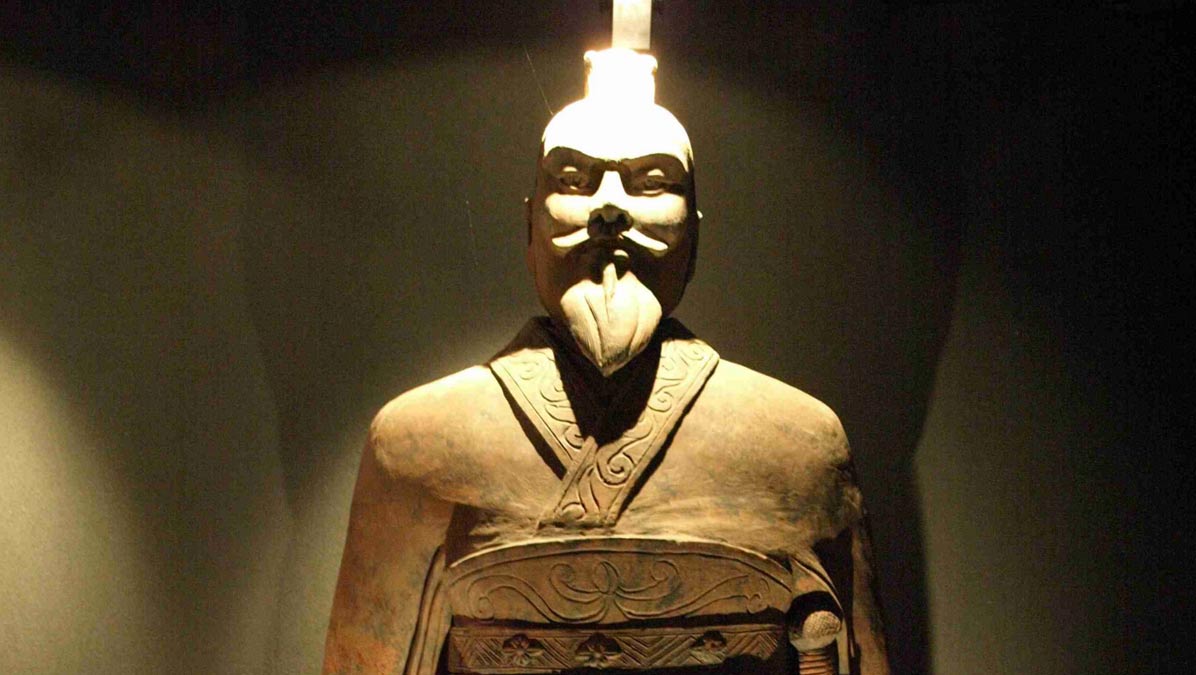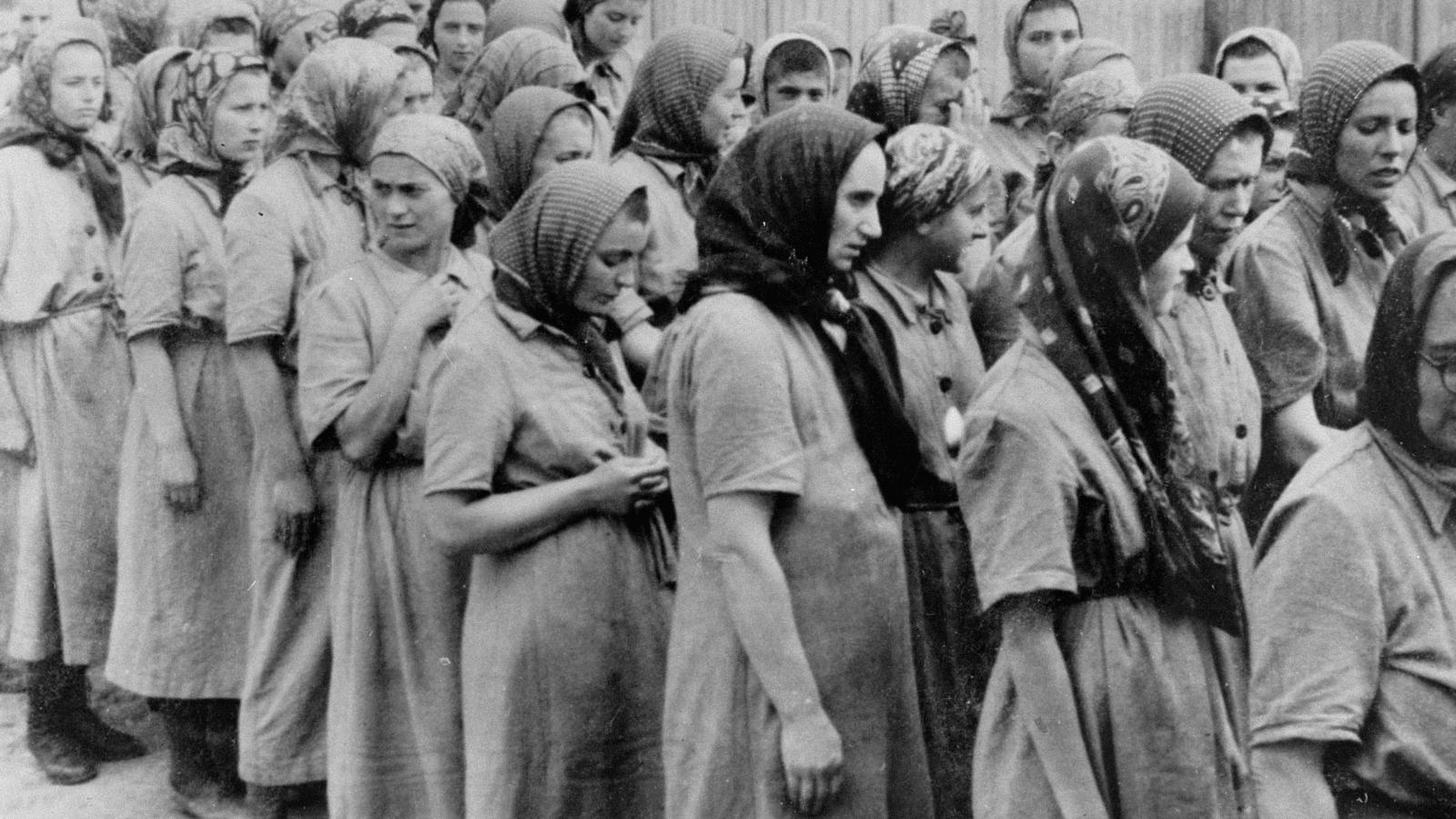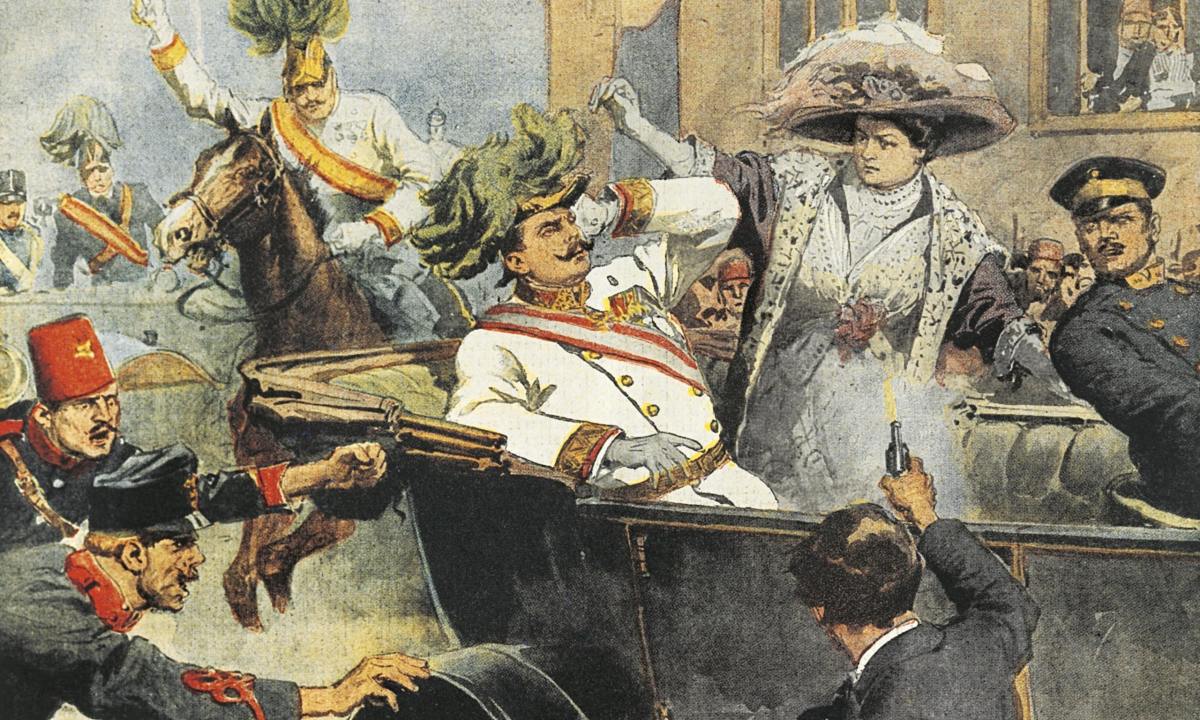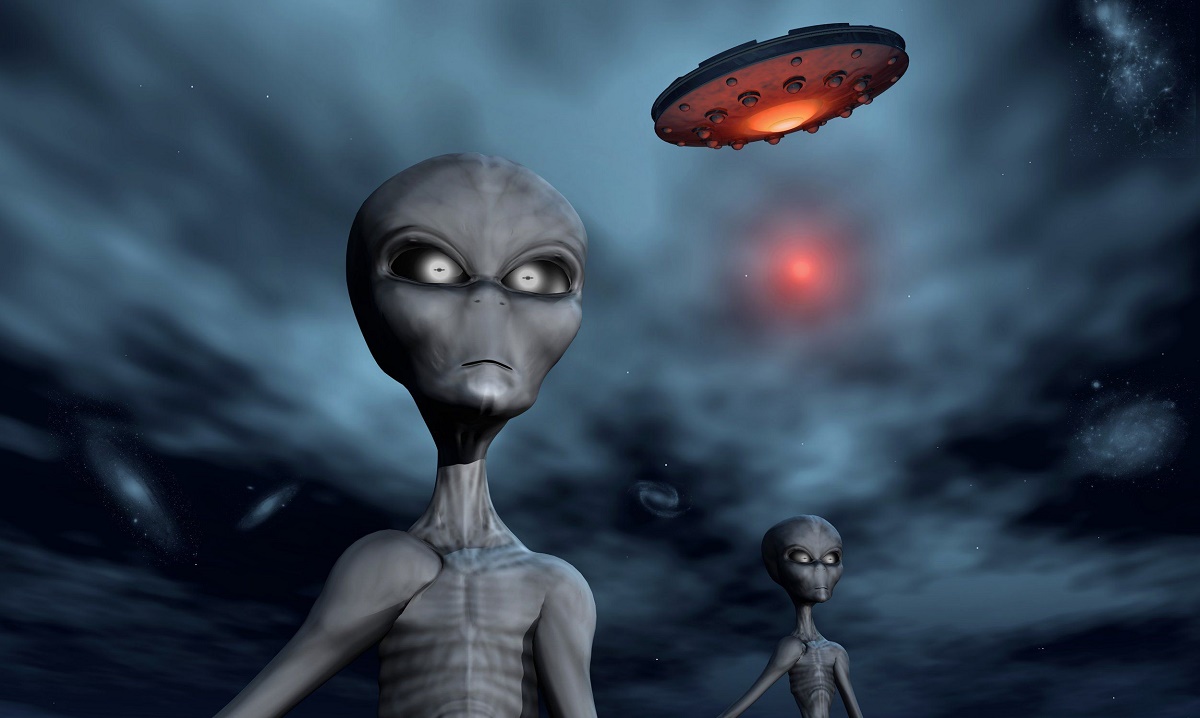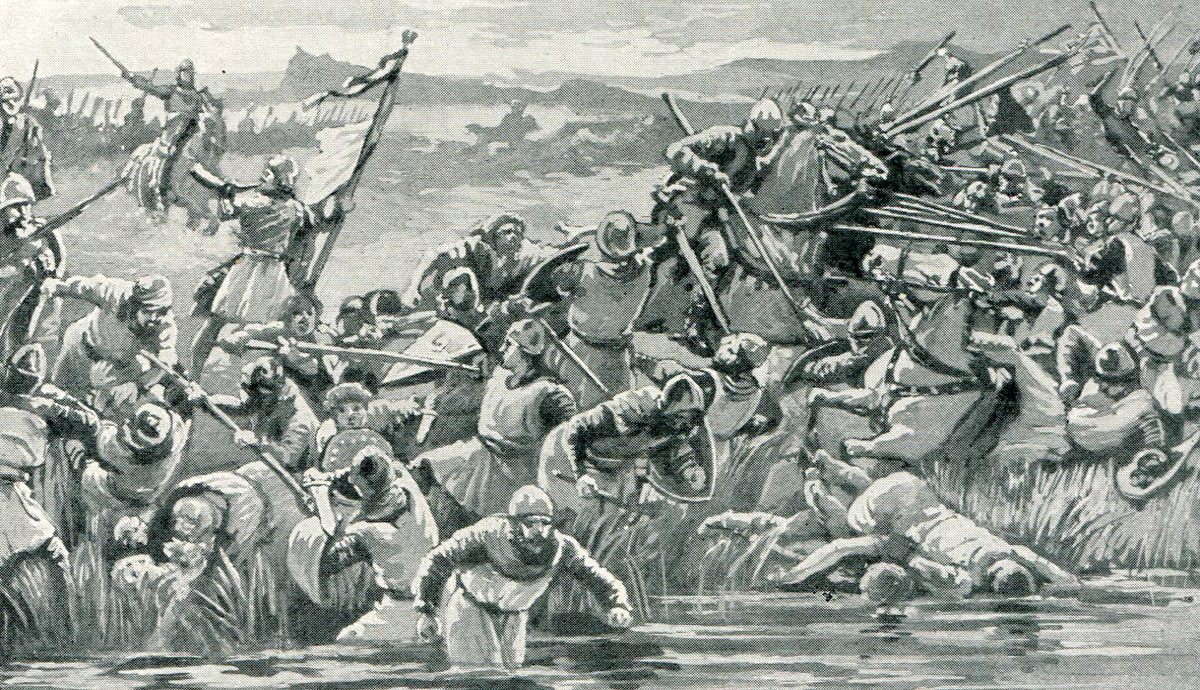In school, you learn about the most important moments that helped shape this world.
These are not those moments. These are the moments that make no sense whatsoever.
It turns out, history is full of all kinds of situations that almost seem more at home in a Kevin Smith film. Some fine folk have discussed what they consider to be the most bizarre things to ever occur in world history.
35. The Whites Of His Eyes
Hitler was literally caught dead in the sights of a British soldier, Henry Tandey, during World War I. They each stopped and made eye contact for several seconds. Like a movie scene, the British soldier (who as I remember was rather seasoned and not some random draftee confronted with his first kill in battle) for whatever reason hesitated and decided not to shoot him. Adolf Hitler, for Pete's sake.
34. Bread And Butter
The Women’s March to Versailles. Basically, after some really bad harvests, the prices of bread quadrupled overnight. This was a big deal considering the average Frenchman ate roughly four to five pounds of bread a day. So the women of Paris, with babies on their backs and armed with kitchen knives, took a 16-mile trek right into Versailles where they charged the guards and demanded to see King Louis XVI whilst still soaking wet from the rain. The king, as a result, distributed all the bread in Versailles to the crowd. This is where the famous saying by Lady Antoinette comes from. Because if these poor peasants can’t eat bread “let them eat cake.”
 Photo by Alexandra Gornago on Unsplash
Photo by Alexandra Gornago on Unsplash
33. Russia's Greatest Love Machine
The death of Rasputin comes to mind. Tsar nobles tried to poison him with cyanide-laced cakes and tea. Noticed that they had no effect on him. Rasputin then proceeded to drink three glasses of cyanide-laced wine. Again, no effect. Fed up, they shot him three times. One to the head. Thinking that he was dead, they left him alone before they decided to get rid of the body. When they came back, he got back up and started attacking the nobles. He was then shot again, wrapped in cloth, and dragged through the streets in the back of a carriage (or car). They then throw him in the Malaya Nevka River. Now, I can't find proof for this one, but there was proof floating around saying that he actually froze to death. Still though, hard to believe this guy was this hard to kill.
32. Too Much Liquid Courage
On September 17th, 1788, the Austrian army's cavalry battalion had been sent out on a scouting mission to find the Ottoman army. They came into contact with a merchant who sold them all beverages and made them all terribly inebriated. A small Austrian infantry unit had crossed the river into their camps and asked to have some of their drinks, and the Hussars (still inebriated) refused by placing barricades around the drinks. A heated argument ensued, and one soldier fired a shot. Immediately, the Hussars and infantry engaged in combat with one another. During the conflict, some infantry began shouting "Turks! Turks!" The Hussars fled the scene, thinking that the Ottoman army’s attack was imminent. Most of the infantry also ran away. As the cavalry ran through the camps, a corps commander reasoned that it was a cavalry charge by the Ottoman army, and ordered artillery fire. Meanwhile, the entire camp awoke to the sound of battle and, rather than waiting to see what the situation was, everyone fled. The troops fired at every shadow, thinking the Ottomans were everywhere; in reality, they were shooting fellow Austrian soldiers. Two days later, the Ottoman army arrived. They discovered 10,000 dead and wounded soldiers and easily took Karánsebes.
31. The True Corpse Bride
Inês de Castro was the noblewoman of a princess who was married to Prince Peter I of Portugal. Peter's wife eventually died, which left Peter "free" to date Inês... by "free," I mean that he was dating her, but his dad, the king, was mad because she was a commoner. So what does a loving father do? Have some dudes murder his son's girlfriend (whom he secretly married under his father's nose). When Peter found out, he was MAD. He fought with his father over this injustice, but only found his revenge when he finally ascended to the throne. He had Inês's murderers killed, and his dad was dead... which was nice. Still, poor Inês never got the recognition she deserved when she was alive... so he dug her up and had people praise her as their corpse queen. What a man won't do for love...
30. A New World Order
Business Plot of 1933. Rich jerks thought the US should run more like fascist Germany and plotted a coup to depose FDR and establish a new government. The only reason it didn't succeed is that the Marine General they choose to replace FDR was the most patriotic Marine to ever live who not only refused (after he got all their info), but set up the co-conspirators. FDR choose not to charge any of the conspirators because they were CEOs and "vital" in his eyes to the recovery from the Great Depression.
29. Two Attempts, Two Misses
Two women, with no evidence of collaboration between them, both attempted to assassinate the same US president in the same state within 17 days of each other. Lynette “Squeaky” Fromme, a member of the Manson family, attempted to assassinate Gerald Ford in California on September 5, 1975. Sarah Jane Moore, a former FBI informant and member of an anarchist cell, tried to assassinate Ford in California on September 22, 1975. These are the only two women to ever be officially charged with an attempted assassination of a sitting US president and they are both alive and not in prison.
28. That Was Fast
The Anglo-Zanzibar War is the shortest war in history. Part of a treaty that the Zanzibar Sultanate had with the UK at the time was that the British consul had to approve the new sultan before they could take the throne. When the sultan died in 1896, a new sultan was crowned without the UK’s approval. The UK sent an ultimatum, so the new sultan barricaded himself in the palace. The UK already had ships nearby, so when the ultimatum expired, they simply blasted the palace then walked in with a handful of troops. From the first volley to the final surrender, the conflict lasted less than 45 minutes.
27. Do The Wave
That time Emperor Napoleon escaped from the island he was imprisoned on after his army was finally defeated, snuck back into France under the nose of King Louis XVIII and literally every royal guard and roadblock from Marseille to Paris, then when he was actually caught just outside of Paris, he managed to persuade the soldiers (who just so happened to be former Bonapartists) to escort him into Paris where he managed to successfully cause the king to flee, on top of raising a full army to wage war against Europe AGAIN. The only time in history an emperor took back an entire country just by waving his hat.
26. A Great Keep
A Russian sculptor was commissioned to make a statue of Christopher Columbus as a gift for the Americans (kind of like the Statue of Liberty.) After the painstaking process of making it and shipping it to America, the Americans essentially said "no thanks" and sent it back. So the sculptor cut off the head of the statue, sculpted a new one and called it a statue of Peter the Great. You can still see it in Moscow.
25. Forest For The Trees
The Battle of Teutoburg Forest. So there's this Germanic Chieftain, Segimerus, and as punishment for fighting Rome, the Romans took his son Arminius and attempted to turn him into one of them. He was raised by a Roman family, given a Roman military education, and ended up as an officer in a force under general Publius Quinctilius Varus. In the meantime, Segimerus dies, so his son is, by all rights, the Chieftain of this tribe. Varus was sent to Germany to fight Arminius' tribe, and, wouldn't you know it, Arminius disappears one night. In the morning, the army moves off through the forest, and, shockingly, gets ambushed by Arminius and an army of angry Germans, who wipe out Varus' army. Varus himself takes his own life to avoid facing punishment for this disaster, and Rome never tried to take territory on that side of the Rhine ever again.
24. Delicious. Refreshing. Pepsi.
There was that time Pepsi became the 6th most powerful military in the world. So Pepsi signed a deal with Russia in the 60s to trade bottles of vodka for Pepsi, and since the Ruble wasn't an international currency yet, they couldn't pay in cash. Fast forward to the 70s and the deal expires, so the USSR has to come up with a new one. So, for three billion dollars' worth of Pepsi, the USSR give them 17 submarines, a cruiser, a frigate, and a destroyer. Pepsi then sent them to Sweden to be dismantled. But for those few days, they were a great military power.
 Photo by ian dooley on Unsplash
Photo by ian dooley on Unsplash
23. Passion Of The False Christ
The Taiping Rebellion.
Nearly 100 million people lost because some guy failed his exams to become a government official and had horrible stress-induced fever dreams he deemed to be "visions." Five years later, he decided the visions meant he was the younger brother of Jesus Christ, meant to spread Christianity throughout China and overthrow the existing dynasty. So he gathered a following, created an army, and fought his way across China. MORE PEOPLE LOST THEIR LIVES THAN THE COMBATANTS OF BOTH WORLD WARS, COMBINED.
If someone wrote a movie with that plot, you'd think it was ridiculous beyond belief. Such an immense loss of life, and most people in the Western world don't even know that it happened!
22. The Long March
The Armenian Genocide and the whole death march. Even crazier because it only happened about 100 years ago. Like literally just one and a half million people, walking across a desert, until they collapsed of exhaustion or reached a concentration camp. Completely awful, has to be one of the worst ways to go, not to mention it wasn't really talked about at all for a very long time.
21. The Boy From Bowral
Don Bradman was ridiculously good at cricket. So much so that his test batting average (I'm American, so I don't really know what that means) was so far ahead of the average for his sport that he's sometimes considered the best athlete ever, in any sport. By comparison, in order to reach the levels of achievement he hit, an NBA player would have to have a lifetime points per game average of over 40. The current record is a little over 30, held by Michael Jordan.
In order to combat this, the English cricket team in the 1930s devised a strategy that basically boiled down to "hit the guy." Imagine a baseball pitcher pitching with the explicit goal of beaning the player, every pitch.
The uproar of this caused a minor diplomatic incident between Australia and England and, according to Wikipedia, had "significant consequences for Anglo-Australian relations, which remained strained until the outbreak of World War II."
20. Walls Against Walls
The Battle of Alesia (52 BC). Basically, the Gauls were getting fed up with Roman encroachment and the various tribes formed a united army (led by a man named Vercingetorix) to kick them out. The resulting Gallic War culminated with the Battle of Alesia, in which the Gallic army fell back into a defensive position in a heavily fortified town. Julius Caesar, leading the Roman legions in the conflict, knew a direct assault would not work out favorably, so, in a move of sublime genius, he built an 11-mile long wall encasing the entire town. Unfortunately, as Caesar would later find out, a huge Gallic relief force was moving in on his position. Most generals would probably abandon the siege at this point, but Caesar was determined to win, so what did he do? He proceeded to build another gigantic wall around the previous wall, this time facing outward. Though heavily outnumbered once the relief army arrived, Caesar managed to secure victory by the slightest margin and end the Gallic Wars. I just have trouble believing such an awesome, but cartoonish battle happened.
19. Fighting Jack
Jack Churchill, who led a unit in WWII armed with a longbow, bagpipes and a Scottish broadsword.
During an ambush of a German patrol in France, he gave the signal to attack by shooting one of the German Staff Sergeants with an arrow, the only recorded attack by an arrow from a British officer during the war.
Another time, he leaped from a landing boat playing his bagpipes.
Another time, he walked back into the town he had just captured to find his sword that he had lost during hand-to-hand combat.
Another time, he was the only man left alive after an attack so he played his bagpipes until being knocked unconscious and captured by the Germans.
Upon being freed at the end of the war he walked to Italy.
He was also displeased with the end of the war: "If it wasn't for those Americans, we could have kept the war going another 10 years."
18. Breaking The Code
During WWII, Alan Turing developed the Enigma Machine for the United Kingdom. This device was used to crack Nazi codes and communication. But in order to maintain its secrecy, at times the British government would knowingly allow the Axis forces to bomb areas of the UK so that they would not suspect that the Allies were listening to them. This lead to some very hard choices and difficult moments that made you question your humanity. The terrible part is that Turing, a hero for his amazing efforts, was tried for being a homosexual years later and was tortured and died of cyanide poisoning.
He was only pardoned for his crimes a few years ago.
17. The Real Reason We Won The War
There was a British general during the American Revolution that had orders to attack a specific city (I think it was Boston) as part of a multi-pronged attack with ground troops. He had a wife at home but also a girlfriend in Philadelphia, who wrote to him that she was sick of waiting for him and would break up with him if he didn’t visit soon.
The general went to Philadelphia.
Apparently, the Boston battle was important enough that having lost there due to fewer troops hurt British morale but boosted American confidence, which in turn helped persuade the French that they would be on the winning side if they backed the Americans. Their assistance turned the tide of the war. All because of a lovestruck general.
The way they know is via letters found hidden in an antique desk in the early 20th century. Still one of my favorite stories in history!
 Photo by Leo SERRAT on Unsplash
Photo by Leo SERRAT on Unsplash
16. We're Falling Apart To Half Time
For me, it is the dancing plague in 1518.
From Wikipedia: "The Dancing Plague (or Dance Epidemic) of 1518 was a case of dancing mania that occurred in Strasbourg, Alsace (then part of the Holy Roman Empire) in July 1518. Around 400 people took to dancing for days without rest, and, over the period of about one month, some of those affected passed away of heart attacks, strokes, or exhaustion."
What the heck was going on in the mind of these people? What caused them to dance until death? It's a very creepy mystery.
15. No Peace In Death
Henry Kissinger destroyed a massive amount of civilians in Southeast Asia. Just Cambodia alone, he ordered the destruction of 100,000 civilians, which also included innocent children. He was quoted saying, "Those people are expendable." Two years later, he was awarded the Nobel Peace Prize. Are you kidding me?
14. I Declare War
The genocide in Bangladesh that led to the war of 1971 between India and Pakistan.
When the British finally left us in 1947, they did a wonderful job partitioning us. This led to two countries, India and Pakistan, with Pakistan having territory roughly 3,000 km away from the rest of its lands - East Pakistan, or today's Bangladesh. As unrest and calls for independence were mounting in East Pakistan (now Bangladesh), the Pakistani military decided to take a more direct hand in cracking down the rebellion.
About three million civilians were destroyed, and over 300,000 women were assaulted over a matter of months. The refugee crisis triggered by this genocide is what prompted India to declare war on Pakistan.
Fun fact: As this genocide is going on, the grand champions of peace and freedom, the US and the UK, sent warships to persuade the Indian military that surrendering was the better option. If it weren't for the the evil USSR sending battleships in the Bay of Bengal, half of our eastern cities would have been blown to dust.
13. Russia Wasn't Having It
In 1707, the Swedes tried to invade Russia in the dead of winter, only to fail miserably. Then, for some odd reason, Napoleon decided to invade Russia in 1812 in the dead of winter, and guess what; they failed. Then, Adolf Hitler decided it would be an amazing idea to do the whole "third time's a charm" thing and try and invade Russia in the dead of winter in 1941.
It failed.
12. Paranoid Android
The emperor of China, Qin Shi Huang Di, wanted to become immortal so he started ingesting a lot of mercury and gold. He became sickly, deranged, and incredibly paranoid (likely from mercury poisoning) and believed all the people he killed would come after him when he died so he had his tomb covered in traps and surrounded by fully-armed terrocata warriors on the four cardinal directions of his tomb to defend him in the afterlife.
The rebels ended up taking all the weapons from the fake soldiers and used them to overthrow the emperor's son and destroy his dynasty.
11. Centuries Of Cleaning
There are areas of France that are so dangerous from battles in WWI that they are still unfit for human habitation over 100 years later. Unexploded shells, polluted soil, and human/animal remains make it so. Tons, literal tons, of unexploded shells are recovered from this area on a yearly basis and, at the current rate of clean-up, it will take another 700 years to clean it all up.
I don't really know if this counts as a "moment" but thinking that these battles, which took place over such a (relatively) short period of time could have such lasting effects for centuries blows my mind. The fact that this was in the 1910s, before the world developed nuclear capabilities, makes it even more mind-blowing.
10. Death Comes Ripping
I am not a historian, but one major event I find fascinating is the Three Years of Great Chinese Famine from 1959-1961. Along with many other factors, the one I find hard to believe is the Chinese goverment put out that sparrows and other kinds of wild birds hurt farming. People around the country banged pots together scaring the birds from landing. This caused the birds to die of exhaustion. This caused plant pests to rise because the people killed off the predators of the bugs. This in turn lead to 13 million people losing their lives.
 Photo by Jacques LE HENAFF on Unsplash
Photo by Jacques LE HENAFF on Unsplash
9. An Unbelievable Massacre
The Holocaust is still an unspeakable horror. I can't believe humans are capable of doing something like this to their own species.
My father visited Auschwitz with my mom in 1994. He couldn't handle the tour. He cried. I've seen my father cry two times in my 22 years on this earth: when his grandfather died and when I was in the hospital.
Only to think about that the things he saw and heard there made him cry. I don't ever want a tour through this hell.
8. Flying For Me
For me, it was the space shuttle Challenger disaster. It had been receiving a lot of press and everyone fell in love with Christa McAuliffe. She was someone like you and me. It was 1986 and I was watching it live with my mother. We'd gotten up early, so excited to see it. All shuttle launches were cool back then and this one was super cool. We could conceive that someday in the far future, regular people could go into space.
I was a young adult, so not a child, and when it took off and then exploded, I was stunned. I couldn't understand what I was seeing and because we sometimes need our moms even when we're grown, I said to my mother "That wasn't supposed to happen, mom, was it?"
She, quiet and staring at the TV with a greater grasp on the reality that we had just witnessed the death of the entire crew, simply said "No."
7. All Nine Lives Gone
The alledged "Great Cat Massacre" of 1730s France. A group of apprentice printers, despising the preferred treatment cats would have over them, set about taking out a ton of cats including mock trials confessions and hangings... of cats. One described it as the funniest thing he'd ever seen.
6. Can't Blame Subway
It's pretty well known, but it still blows my mind that the assassination of Archduke Franz Ferdinand, the event that essentially launched WWI (which largely shaped, and continues to shape the geo-political climate of not just Europe, but arguably the world) was basically a result of dumb luck.
Gavrilo Princip, a member of the group that had earlier in the day attempted to assassinate the archduke went for a sandwich, and the motorcade of the archduke quite literally stalled across the street from the cafe Princip was at. Princip basically strolled across the street and shot Ferdinand, launching a conflict that at the very least precipitated two world wars.
5. The Truth Is Out There
This young boy from Australia was abducted and tortured by aliens in the 1950s. They took him in as one of their own for a few months (so the child says) and taught him the culture and language of the aliens. When he returned home, he took the lives of his parents, believing he was a Messiah for the alien religion, and went on a crime spree. When the police caught him he had taken out nearly 10 people. However, he served no prison time as he was unable to be properly prosecuted as, technically, it was in self-defense (apparently, he was being bullied by these people). He passed away in the 90s and was "fluent" in the alien language.
4. Completely Cleaning House
The battle of Bannockburn. There's some crazy stuff about this battle. How the English brought an army of 20,000 professional soldiers, while Scots had a 5,000 strong rabble and completely wiped the floor with England. Robert the Bruce made a massive pike formation and the formation just went blobbing around like a wrecking ball. Craziest part is how Robert had little armor and was charged by a knight before the battle started. With the lance about to pierce his back. he apparently did this crazy move and ended up planting his ax right on the knight's crown in a split second.
3. The Needle And The Damage Done
We know from a number of sources that the Roman Emperor Marcus Aurelius, famous for his stoic meditations and cameo in Gladiator, was severely addicted to opium. His addiction was so bad that when he tried to stop, the withdrawal symptoms nearly took him out. The people were so convinced that he was dying that his friend and general Avidus Cassius staged a coup in order to seize the throne, which failed pretty poorly.
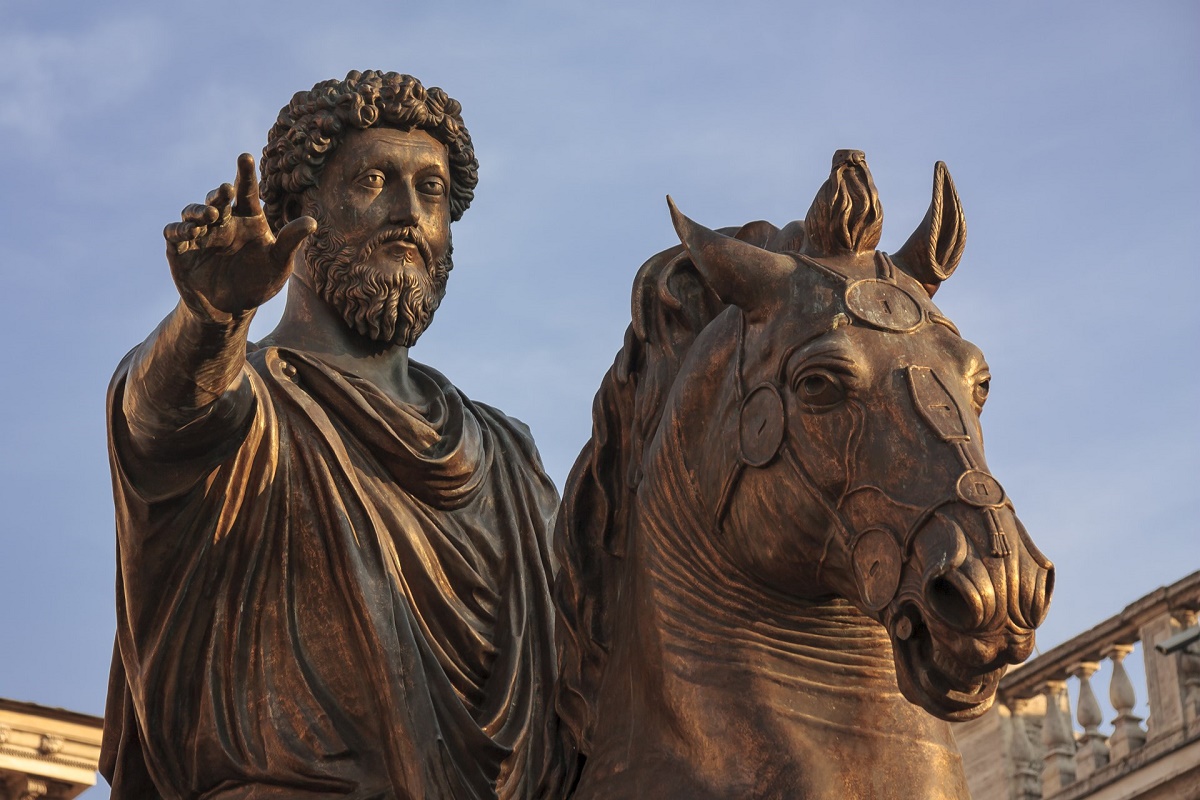 Foundation Of Economic Education
Foundation Of Economic Education
2. Spartans, Prepare For Glory
The Battle of Thermopylae.
I'd wager most people here have seen 300. It's staggering to think that that movie, in all its slow-mo splendor, is, as far as we can tell, closer to historical fact than cinematic fiction.
300 Spartans, 700 Thespians, and 400 Thebans holding off a force of between 100,000 and 150,000 Persians whose arrow volleys quite literally block out the sun. Supposedly they held for seven days with three days of battle before they were killed to the man.
Now that is hard to believe.
 Wikimedia
Wikimedia
1. It's No Central Perk
Tito, Stalin, Hitler, and Trotsky all patronized the same small cafe in Vienna, Austria in the same month in 1913, likely being there at the same time. Alfred Adler must have run into Trotsky often there, as he mentioned him later in a famous interaction with Count Berchtold. It's mentioned that Archduke Ferdinand and Freud also frequented the establishment at the same time.



